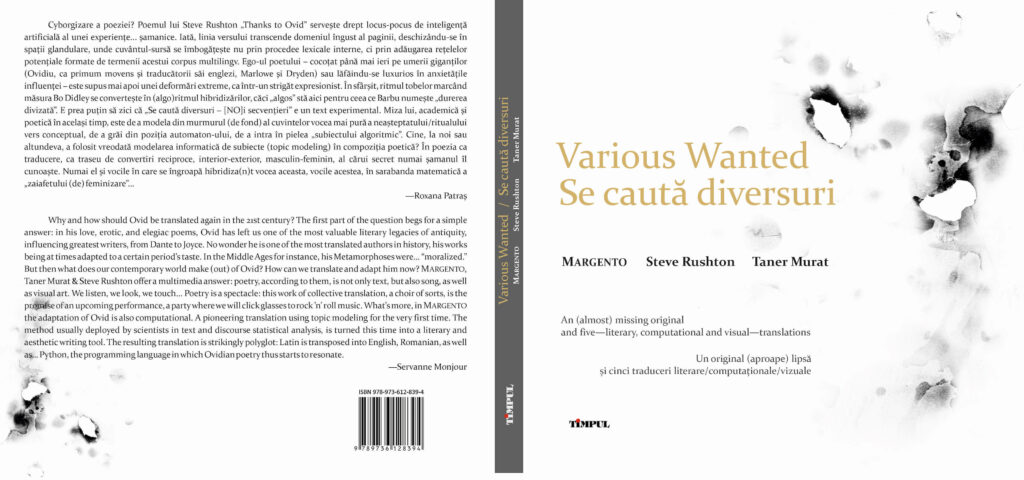
MARGENTO, Steve Rushton, and Taner Murat. 2021. Various Wanted. An (almost) missing original and five–literary, computational, and visual–translations. Iasi & London: Timpul.
A UK/Romania project commemorating 2 millennia since the passing of Roman poet Ovid as an exile among the Black-Sea-coast Getae in Dacia (present-day Romania).
An Arts Council England and British Council project.
About the book:
Why and how should Ovid be translated again in the 21st century? The first part of the question begs for a simple answer: in his love, erotic, and elegiac poems, Ovid has left us one of the most valuable literary legacies of antiquity, influencing greatest writers, from Dante to Joyce. No wonder he is one of the most translated authors in history, his works being at times adapted to a certain period’s taste. In the Middle Ages for instance, his Metamorphoses were… “moralized.” But then what does our contemporary world make (out) of Ovid? How can we translate and adapt him now? MARGENTO, Taner Murat & Steve Rushton offer a multimedia answer: poetry, according to them, is not only text, but also song, as well as graphic art. We listen, we look, we touch… Poetry is a spectacle: this work of collective translation, a choir of sorts, is the promise of an upcoming performance, a party where we will click glasses to rock ’n’ roll music. What’s more, in MARGENTO the adaptation of Ovid is also computational. A pioneering translation using topic modeling for the very first time. The method usually deployed by scientists in text and discourse statistical analysis, is turned this time into a literary and aesthetic writing tool. The resulting translation is strikingly polyglot: Latin is transposed into English, Romanian, as well as… Python, the programming language in which Ovidian poetry thus starts to resonate.
— Servanne Monjour, Sorbonne Université
